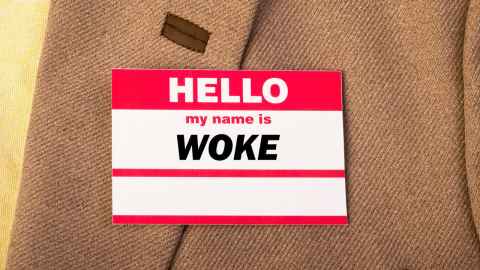Where the ‘woke’ word fits in a history of racism
14 May 2024
Opinion: The appropriation of the term ‘woke’ by the political right diminishes the struggle of African-American people – and people of colour who feel they need to be watchful, argues Neal Curtis

Unfortunately, the term ‘woke’ is back in the news and for the most stupid of reasons: Act leader David Seymour is now designating certain types of food as ‘woke’ or not.
As the Government makes cuts to school lunches, let us consider what ‘woke’ might mean here.
As a term that has become increasingly meaningless because it is now used for things people on the political right don’t like, in the immediate context of school lunches the first thing to note is that both of the foods referred to by Seymour, sushi and quinoa, are ‘foreign’ to traditional anglicised food.
To raise the spectre of racism in relation to the comments would no doubt make me a ‘shrieking’ leftist, but for anyone with a basic knowledge of the origins of ‘woke’ as a colloquialism it is evident that the appropriation of the term is itself racist. Adding ‘foreign’ things to the list of what is deemed ‘woke’ is almost the logical thing to do given the designation is already rooted in the dismissal of what is different, or of the lived experience of others.
Some readers might not be aware that ‘woke’ is a term rooted in the experience of African-Americans. Early in the 20th Century, the idea of staying ‘woke’ appeared in songs, most notably ones like Lead Belly’s Scottsboro Boys recorded in 1938 about a series of events in 1931 that saw a group of young black men accused of rape. It became a simple warning to black people travelling through deeply racist states in the US that they needed to be very careful and mindful; to ‘stay woke’.
Given black people could be lynched for a so-called crime ‘evidenced’ by baseless hearsay, the message was to be awake to the threats around you, and watchful for the actions of those who believe you are unworthy of the law’s protection or its due process because of the colour of your skin.
The appropriation of ‘woke’ is part of a right-wing lexicon designed to undermine calls for progressive social change. We saw this with the use of ‘PC’ (politically correct), which ‘woke’ seems to have replaced.
The word has been used ever since by African-Americans and gradually evolved from the specific warning about prejudice and discrimination to a deeper understanding of structural or institutional racism, or the disadvantages faced by African-Americans and the various social barriers to their wellbeing. Rather than a defensive call it has now became something affirmative; a demand for change.
A renewed use of the term surfaced in the wake of the US police killings of Black people that gave birth to the Black Lives Matter movement. In terms of the historical continuity of the term, some people have likened these killings to modern-day lynchings because their summary, extra-legal nature evoked memories of the mob ‘justice’ that threatened the lives of African-Americans in the segregated US.
Let me clarify: the appropriation of ‘woke’ is part of a right-wing lexicon designed to undermine calls for progressive social change. We saw this with the use of ‘PC’ (politically correct), which ‘woke’ seems to have replaced. What was pejoratively called ‘PC’ was anything that questioned or challenged dominant categories or ways of speaking.
For example, not referring to women as ‘birds’ was mocked as PC, as was the request to not grab, touch or fondle them in the workplace. The request to not use derogatory terms for gay people was also PC, as was wheelchair users not wanting to be described as ‘confined to a wheelchair’.
Returning to Seymour’s categorisation of certain foods as ‘woke’, the affront that certain people might request their dietary requirements be catered for was also PC. In other words, anything that challenged the dominant was dismissed as PC. Can quinoa be PC?
Another favourite on the political right is ‘cancel culture’. This has been used to regularly dismiss challenges to racism, misogyny, homophobia and transphobia, especially on social media or on university campuses. Despite no evidence of any significant ‘cancelling’ taking place on campuses, the political right, ably supported by a media happy to regurgitate any novelty they think will get attention, have amplified the concept in a deliberate attempt (see the explicit strategy as set out by Christopher Rufo on X, formerly known as Twitter, for example) to again denigrate any progressive politics.
The irony is that it is the political right, especially in the US, that is actually banning books from school curriculums, emptying library bookshelves of material they find offensive, and openly sacking people.
So, here we come back to ‘woke’. The current appropriation of the term by those on the political right is a diminishment of the struggle of African-American people, and we might extend that to any people of colour who feel they need to be watchful in a world still dominated by whiteness.
In diminishing and erasing this history the appropriation of the term is inherently racist and we should be mindful of those who use it to mock and disparage. When someone takes a term used to help protect a minority group from the violence of segregation and applies it to sushi, it speak volumes about them.
This article reflects the opinion of the author and not necessarily the views of Waipapa Taumata Rau University of Auckland.
This article was first published on Newsroom, Where the ‘woke’ word fits in a history of racism, 14 May, 2024
Media contact
Margo White I Research communications editor
Mob 021 926 408
Email margo.white@auckland.ac.nz